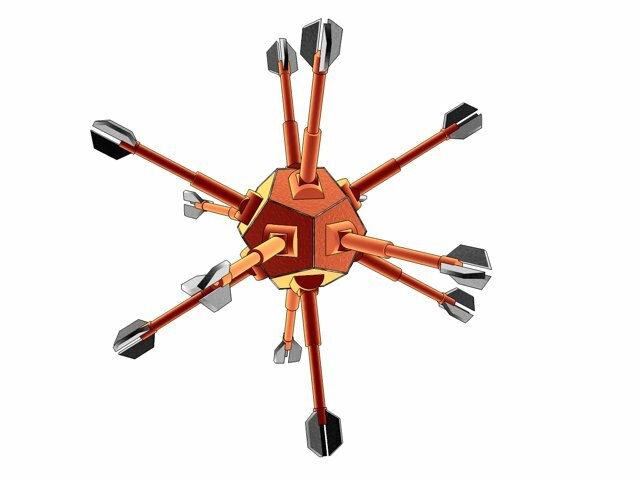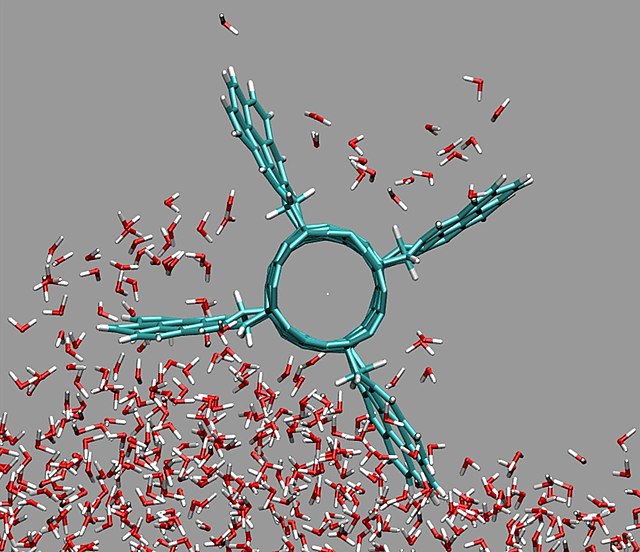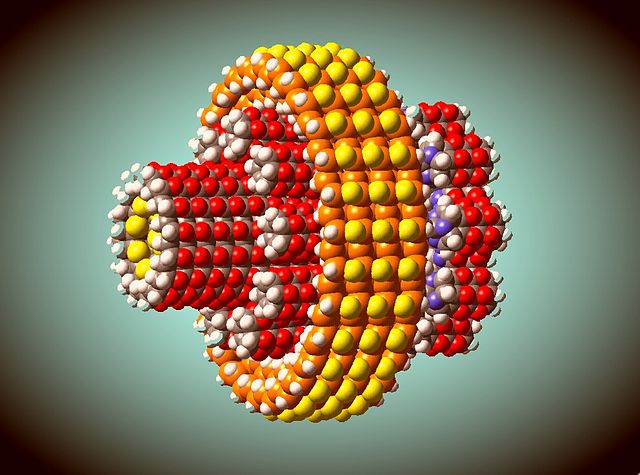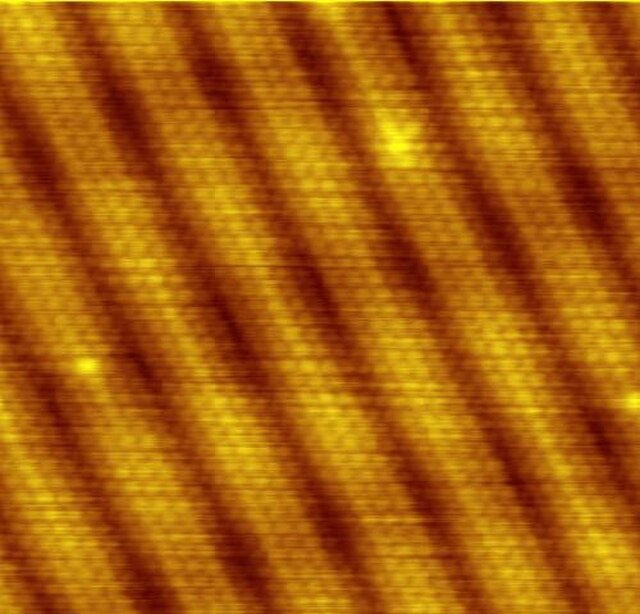Molecular nanotechnology (MNT) is a technology based on the ability to build structures to complex, atomic specifications by means of mechanosynthesis. This is distinct from nanoscale materials. Based on Richard Feynman's vision of miniature factories using nanomachines to build complex products, this advanced form of nanotechnology would make use of positionally-controlled mechanosynthesis guided by molecular machine systems. MNT would involve combining physical principles demonstrated by biophysics, chemistry, other nanotechnologies, and the molecular machinery of life with the systems engineering principles found in modern macroscale factories.
Diagram of a 100 micrometer foglet
Image: Molecularpropeller
Image: Nanob
Nanotechnology was defined by the National Nanotechnology Initiative as the manipulation of matter with at least one dimension sized from 1 to 100 nanometers (nm). At this scale, commonly known as the nanoscale, surface area and quantum mechanical effects become important in describing properties of matter. The definition of nanotechnology is inclusive of all types of research and technologies that deal with these special properties. It is therefore common to see the plural form "nanotechnologies" as well as "nanoscale technologies" to refer to the broad range of research and applications whose common trait is size. An earlier description of nanotechnology referred to the particular technological goal of precisely manipulating atoms and molecules for fabrication of macroscale products, also now referred to as molecular nanotechnology.
Fullerene nanogears
Comparison of nanomaterials sizes
Image of reconstruction on a clean Gold(100) surface, as visualized using scanning tunneling microscopy. The positions of the individual atoms composing the surface are visible.
Graphical representation of a rotaxane, useful as a molecular switch







